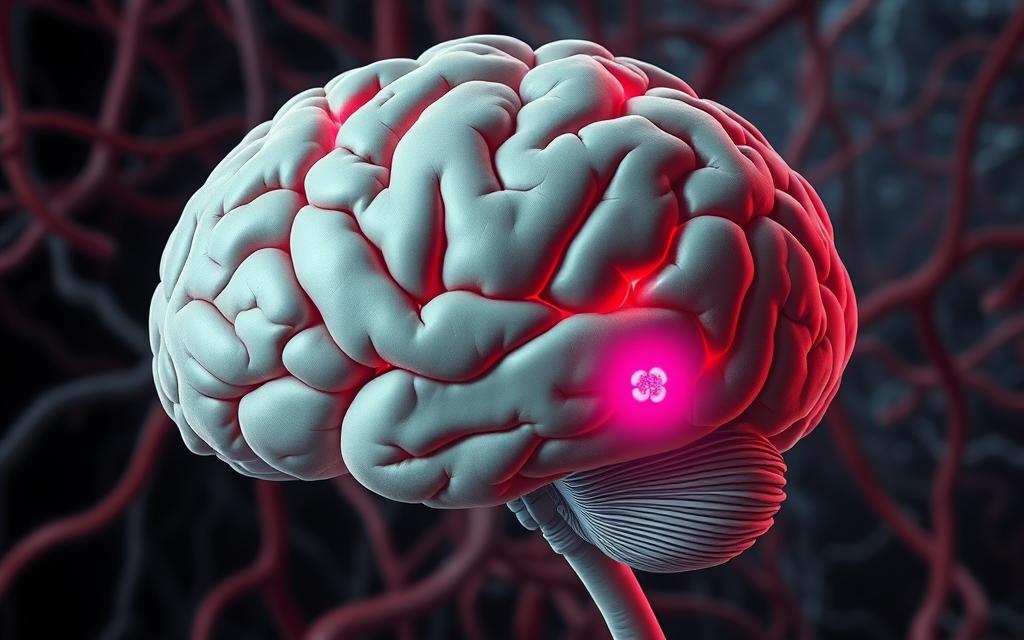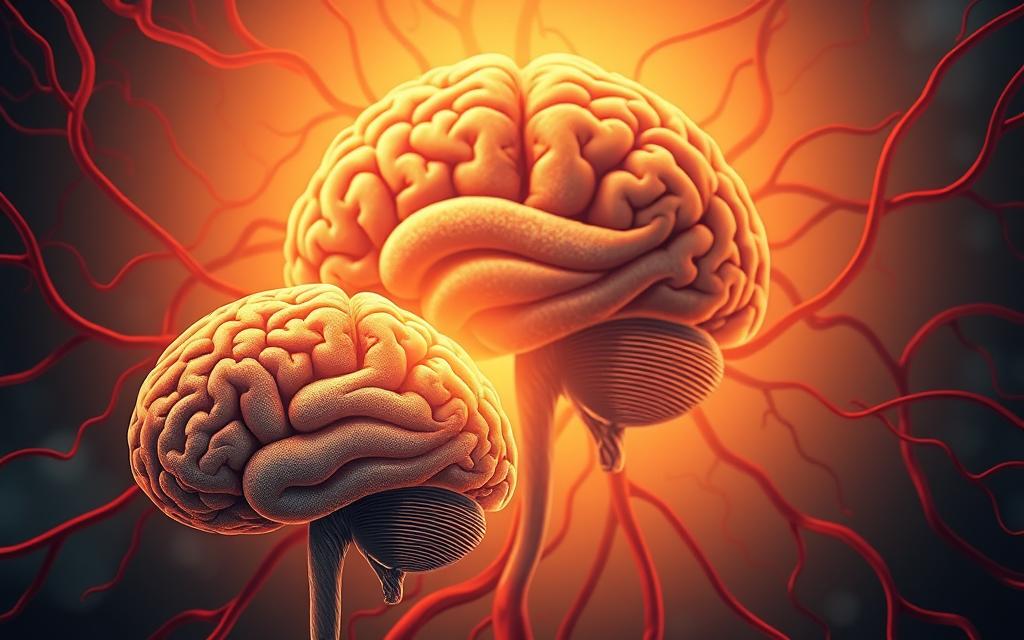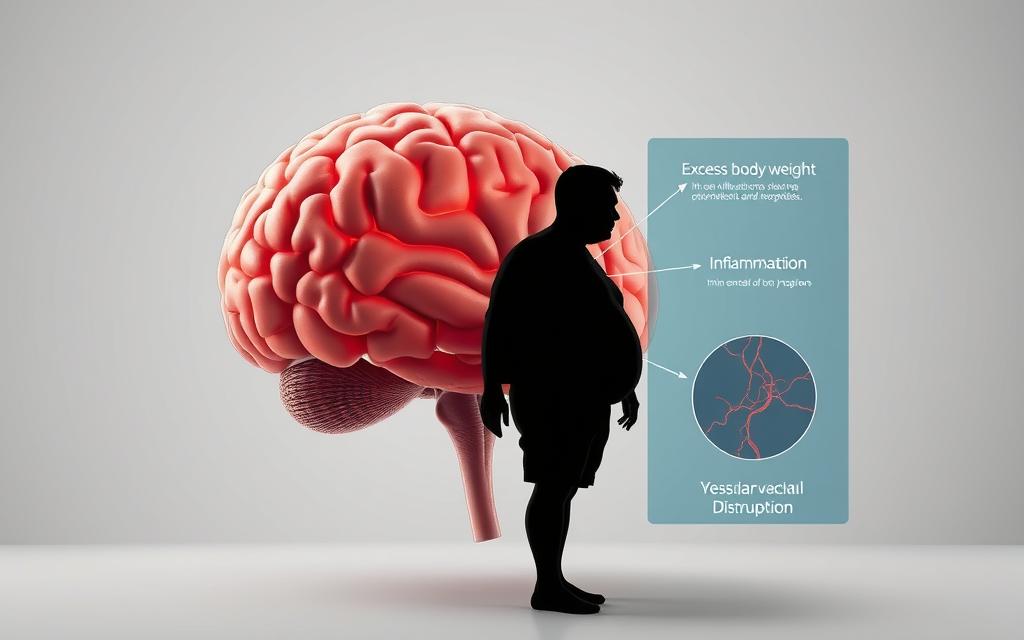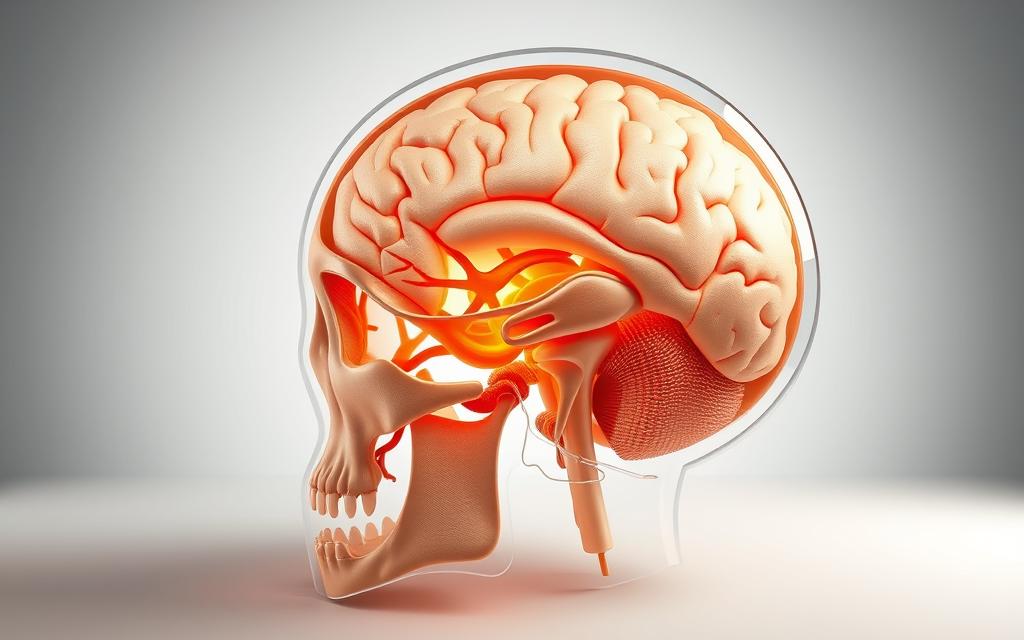We often underestimate how our daily choices shape our long-term health. Dementia, a term that covers memory loss and cognitive decline, affects millions worldwide. While genetics play a role, research shows that lifestyle factors can significantly influence our risk.
Did you know that behaviors in mid-life, particularly between ages 40 and 65, can have a lasting impact? A recent study highlights how certain everyday actions can elevate the likelihood of developing dementia. For instance, individuals with diabetes who adopt unhealthy routines face even greater risks.
The good news? Many of these factors are within our control. By understanding which habits contribute to the problem, we can take steps to protect our cognitive health. This article explores 15 common behaviors that may increase dementia risk and offers actionable advice to help you make better choices.
If you or a loved one are concerned about dementia, support is available. Call the dementia support line at 0333 150 3456 for guidance and resources.
Key Takeaways
- Dementia impacts memory and cognitive function.
- Lifestyle choices can significantly affect dementia risk.
- Mid-life behaviors are particularly influential.
- Diabetes and unhealthy habits compound the risk.
- Small changes can make a big difference in brain health.
Introduction: Understanding Dementia and Its Risk Factors
Brain health is like a savings account—what we invest now matters later. Dementia, a term for cognitive decline, includes several types, such as Alzheimer’s and vascular dementia. Alzheimer’s is marked by amyloid plaques and tau tangles, which harm brain cells. Vascular dementia stems from reduced blood flow, often due to strokes or vascular issues.
Dementia risk factors fall into two categories: modifiable and non-modifiable. Non-modifiable factors include age and genetics, like the APOE4 gene. Modifiable factors involve lifestyle and health conditions, such as high blood pressure, diabetes, and smoking.
A 12-year UK Biobank study with 160,000 participants found that better education, nutrition, and cardiovascular care have lowered dementia rates. However, rising obesity and diabetes could reverse this progress.
Diabetes, for example, doubles the risk of vascular dementia by damaging brain blood vessels. Managing blood sugar levels is crucial for reducing this risk.
Here’s a breakdown of modifiable and non-modifiable risk factors:
| Modifiable Risk Factors | Non-Modifiable Risk Factors |
|---|---|
| High blood pressure | Age (65+) |
| Diabetes | Genetics (APOE4 gene) |
| High cholesterol | |
| Smoking | |
| Obesity |
Protecting brain health involves adopting positive behaviors. Regular exercise, a balanced diet, and social engagement are key. These steps can help reduce the risk of developing dementia and improve overall well-being.
Lack of Physical Activity
Staying active isn’t just about fitness—it’s a shield for your brain. Research shows that regular physical activity can reduce risk of cognitive decline by up to 30%. Yet, many of us lead sedentary lives, which can harm our brain health over time.

Inactivity reduces cerebral blood flow, depriving the brain of essential oxygen and nutrients. Over time, this can lead to memory issues and other cognitive problems. Experts recommend at least 150 minutes of moderate exercise per week to maintain brain health.
Types of Exercise That Benefit the Brain
Both aerobic and strength training offer unique benefits. Aerobic activities, like brisk walking or swimming, improve blood flow to the brain. Strength training, on the other hand, helps maintain muscle mass and supports overall health.
For seniors, SAFE exercise videos provide guided routines that are gentle on the body yet effective. Even small changes, like taking the stairs for two floors daily, can make a big difference.
Exercise also helps manage comorbid conditions like diabetes and heart disease, which are linked to higher dementia risk. By staying active, we protect not just our brains but our overall well-being.
Excessive Alcohol Consumption
Our relationship with alcohol can have far-reaching effects on our brain health. While moderate drinking may seem harmless, excessive consumption can lead to significant cognitive decline. Understanding how alcohol interacts with our brain is key to making informed choices.

How Alcohol Affects the Brain
Ethanol, the active ingredient in alcohol, is a neurotoxin that can damage brain cells over time. Chronic consumption disrupts cognitive functions like memory, attention, and problem-solving. It also impairs the absorption of essential nutrients, such as thiamine (vitamin B1), which is vital for brain function.
One severe consequence of thiamine deficiency is Wernicke-Korsakoff syndrome. This condition starts with confusion and coordination issues and can progress to severe memory loss. Early treatment with thiamine can reverse some symptoms, but untreated cases may lead to permanent damage.
Alcohol also harms blood vessels through direct toxicity, increased blood pressure, and altered lipid profiles. These mechanisms contribute to cardiovascular diseases, which further elevate the risk of cognitive decline.
Additionally, alcoholic beverages are “empty calories,” providing energy without essential nutrients. Regular consumption can lead to weight gain and nutritional deficiencies, further compromising brain health.
Practical Steps to Reduce Risk
To protect your brain, consider limiting alcohol intake. The Canadian Centre on Substance Use and Addiction recommends no more than two drinks per week to minimize health risks. For those who enjoy social drinking, mocktails offer a flavorful alternative. Here are a few recipes to try:
- South Pointe Paloma: Grapefruit juice, lime juice, and soda water.
- H2No Ranch Water: Lime juice, agave syrup, and sparkling water.
- Passion Fruit Lemonade: Passion fruit puree, lemon juice, and a touch of sweetness.
By making mindful choices, we can reduce the risk of alcohol-related brain damage and support long-term cognitive health.
Smoking and Its Impact on Brain Health
Smoking isn’t just a lung issue—it’s a brain issue too. Research shows that smokers face a 30-50% higher risk of developing dementia compared to non-smokers. This is due to the harmful effects of smoking on blood vessels and oxygen transport in the body.

When we smoke, carbon monoxide enters the bloodstream, reducing the ability of red blood cells to carry oxygen. Over time, this can lead to accelerated atherosclerosis in cerebral arteries, restricting blood flow to the brain. Reduced blood flow increases the risk of vascular dementia and other cognitive issues.
Secondhand smoke also poses a significant threat. Even non-smokers exposed to secondhand smoke can experience similar vascular damage, putting their brain health at risk. Protecting ourselves and our loved ones means creating smoke-free environments.
Quitting smoking is one of the best steps we can take for our brain health. Resources like nicotine patches, apps, and support groups can make the process easier. The economic cost of cigarettes far outweighs the investment in brain supplements or cessation tools.
By understanding the dangers of smoking and taking action, we can protect our cognitive function and improve our overall well-being. It’s never too late to make a change.
Poor Diet and Its Effects on the Brain
The food we eat plays a vital role in how our brain functions. A poor diet can lead to cognitive decline, while a nutrient-rich one can protect and enhance brain health. Understanding the connection between nutrition and the brain is essential for long-term well-being.

The Role of Nutrition in Brain Health
Nutrients must cross the blood-brain barrier to support cognitive function. Foods rich in antioxidants, healthy fats, and vitamins are particularly beneficial. The MIND diet, a hybrid of the Mediterranean and DASH diets, focuses on brain-boosting foods like leafy greens, berries, and nuts.
Trans fats, found in processed foods, are harmful to brain health. They increase inflammation and oxidative stress, which can damage brain cells. In contrast, omega-3 fatty acids, found in fish and flaxseeds, support brain function and reduce risk of cognitive decline.
For busy individuals, meal prep strategies can make healthy eating easier. Planning meals in advance ensures access to nutritious options, even on hectic days. The Baycrest food guide offers free resources to help create balanced meals.
Color-Coded Food Chart
Here’s a simple guide to brain-healthy foods:
| Color | Food | Benefit |
|---|---|---|
| Purple | Blueberries, Eggplant | Rich in anthocyanins, which protect brain cells |
| Green | Spinach, Broccoli | High in folate and vitamin K, essential for cognition |
| Orange | Carrots, Sweet Potatoes | Packed with beta-carotene, which supports memory |
For those caring for aging loved ones, dementia-friendly recipes like soft foods and smoothies can ensure proper nutrition. Small changes in diet can make a big difference in brain health and overall quality of life.
Social Isolation and Loneliness
Connecting with others is more than just a social need—it’s a brain health necessity. Research shows that social isolation and loneliness can significantly impact cognitive function. In the UK, depression rates are as high as 20%, often linked to a lack of meaningful interactions.

Our brains are wired for connection. The mirror neuron system, which helps us empathize and understand others, thrives on social engagement. When we isolate ourselves, this system weakens, leading to feelings of loneliness and even cognitive decline.
Volunteering is one way to combat isolation. Helping others not only builds connections but also boosts mental well-being. Community centers offer programs like book clubs, art classes, and fitness groups, providing opportunities to meet new people and stay active.
Technology can also bridge the gap. Online platforms like Zoom offer virtual classes and social gatherings, making it easier for seniors to stay connected. Pet therapy is another effective solution, as animals provide companionship and reduce stress.
Starting conversations can be challenging, but here are a few tips:
- Ask open-ended questions to encourage dialogue.
- Share personal stories to create a sense of connection.
- Listen actively and show genuine interest.
Here’s a quick guide to reducing social isolation:
| Activity | Benefit |
|---|---|
| Volunteering | Builds connections and boosts mental health |
| Community Programs | Encourages social interaction and learning |
| Tech Solutions | Provides virtual connections for isolated individuals |
| Pet Therapy | Offers companionship and reduces stress |
By staying socially engaged, we can protect our brain health and improve our overall quality of life. Small steps, like joining a class or adopting a pet, can make a big difference.
Chronic Stress and Its Impact on the Brain
Chronic stress is more than just a mental burden—it directly impacts our brain health. When stress becomes a constant companion, it can lead to serious cognitive issues. Understanding how stress affects our brain is the first step toward managing it effectively.
One of the key players in stress-related brain damage is cortisol. This hormone, released during stressful situations, can cause hippocampal atrophy over time. The hippocampus is crucial for memory and learning, and its shrinkage is linked to cognitive decline.
Sleep plays a vital role in mitigating stress. Research suggests that getting at least 7 hours of sleep nightly helps regulate cortisol levels and supports brain recovery. Without adequate rest, the brain struggles to repair itself, making stress even more damaging.
How Stress Affects Cognitive Function
Workplace stress is a significant contributor to chronic stress. Studies show that 83% of U.S. workers suffer from work-related stress, which can lead to burnout and cognitive impairment. Finding ways to manage stress at work is essential for long-term brain health.
Mindfulness apps like Headspace and Calm offer practical tools for stress reduction. Both apps provide guided meditations and breathing exercises, but Headspace focuses more on structured programs, while Calm emphasizes flexibility. Choosing the right app depends on personal preferences and needs.
Relaxation techniques can also help. The 4-7-8 breathing method, for example, is a simple yet effective way to calm the mind. Here’s how it works:
- Inhale through your nose for 4 seconds.
- Hold your breath for 7 seconds.
- Exhale through your mouth for 8 seconds.
For those seeking additional resources, McGill University offers a comprehensive guide on stress management. Their research-backed strategies can help individuals develop healthier coping mechanisms.
A case study on caregiver stress highlights the importance of self-care. Caregivers often face high levels of stress, which can lead to cognitive decline. By prioritizing their own well-being, caregivers can better support their loved ones.
td>Supports brain recovery and cortisol regulation
| Stress Management Techniques | Benefits |
|---|---|
| Mindfulness Meditation | Reduces anxiety and improves focus |
| 4-7-8 Breathing | Calms the nervous system |
| Regular Sleep |
By understanding the impact of chronic stress and taking proactive steps to manage it, we can protect our brain health and improve our overall quality of life. Small changes today can lead to significant benefits tomorrow.
Lack of Mental Stimulation
Mental engagement plays a crucial role in maintaining cognitive sharpness over time. The cognitive reserve theory suggests that keeping our brains active builds resilience against cognitive decline. This means the more we challenge our minds, the better our ability to handle age-related changes.

Neuroplasticity, the brain’s ability to adapt and rewire itself, is key to this process. Activities that stimulate the brain, like learning a new language or playing an instrument, strengthen neural connections. Research shows that bilingual individuals have a lower risk of developing memory issues.
Hobbies are a great way to stay mentally active. Learning to play an instrument, for example, engages multiple areas of the brain. It improves coordination, focus, and memory. Even simple tasks like puzzles or reading can make a difference.
While brain training apps are popular, they’re not a one-size-fits-all solution. Some apps lack scientific backing, so it’s important to choose wisely. Instead, consider local library programs, which often offer free classes and workshops. These activities provide both mental stimulation and social interaction.
Here are a few ideas to get started:
- Join a book club or writing workshop.
- Take up a new hobby like painting or gardening.
- Explore online courses on topics that interest you.
By incorporating these practices into our daily lives, we can protect our brain health and enjoy a sharper mind for years to come. Small steps today can lead to significant benefits tomorrow.
Poor Sleep Habits
Quality sleep is a cornerstone of maintaining a sharp mind and overall well-being. When we don’t get enough rest, it can lead to serious problems for our brain health. Understanding the connection between sleep and cognitive function is essential for protecting our minds.

The Connection Between Sleep and Brain Health
During sleep, our brain’s glymphatic system works to clear out toxins and waste products. This process is crucial for maintaining cognitive function and reducing the risk of memory issues. Without adequate rest, this system can’t function properly, leading to long-term problems.
Sleep apnea, a condition where breathing repeatedly stops during sleep, has been linked to a higher likelihood of developing dementia. This is because it disrupts oxygen flow to the brain, causing damage over time. Addressing sleep apnea with treatments like CPAP machines can significantly reduce this risk.
Tips for Better Sleep
Creating an ideal sleep environment is the first step toward improving rest. Here are some practical tips:
- Keep your bedroom cool, dark, and quiet.
- Establish a consistent bedtime routine to signal your body it’s time to sleep.
- Consider using melatonin supplements under a doctor’s guidance to regulate sleep cycles.
- Implement a “screen curfew” by avoiding phones and TVs at least an hour before bed.
- For seniors, short naps can be beneficial, but avoid napping too late in the day.
By prioritizing good sleep habits, we can protect our brain health and enjoy a sharper mind for years to come. Small changes today can lead to significant benefits tomorrow.
Ignoring Hearing Loss
Hearing loss is more than just an inconvenience—it’s a serious threat to our cognitive health. When left untreated, it can lead to auditory deprivation, a condition where the brain loses its ability to process sounds effectively. Over time, this can contribute to memory issues and other cognitive problems.

Early intervention is crucial. Studies show that using hearing aids can reduce the risk of cognitive decline to normal levels. Affordable options are now available, making it easier for people to access the support they need. Medicare also covers certain hearing aids, providing financial relief for many.
Advancements in technology, like real-time captioning, have made communication easier for those with hearing loss. These tools help bridge the gap and reduce feelings of isolation. Social withdrawal is a common warning sign, so staying connected is essential.
| Solution | Benefit |
|---|---|
| Hearing Aids | Restore hearing and reduce cognitive risk |
| Captioning Tech | Improve communication and accessibility |
| Medicare Coverage | Make hearing aids more affordable |
By addressing hearing loss early, we can protect our brain health and maintain our quality of life. Small steps, like scheduling a hearing test, can make a big difference.
High Blood Pressure and Its Effects on the Brain
High blood pressure silently threatens our brain health, often without obvious symptoms. Known as the “silent killer,” it can damage blood vessels in the brain, leading to serious cognitive issues over time. Maintaining a target of 120/80 mmHg is essential for reducing these risks.

One of the most concerning effects of high blood pressure is the risk of silent strokes. These occur without noticeable symptoms but can cause small areas of brain damage, contributing to memory loss and cognitive decline. Regular monitoring at home can help detect and manage blood pressure levels effectively.
The DASH diet is a proven way to control high blood pressure. This eating plan emphasizes fruits, vegetables, whole grains, and low-fat dairy while reducing sodium intake. Studies show it can lower blood pressure within weeks.
Here are some practical steps to manage high blood pressure:
- Home Monitoring: Use a reliable blood pressure monitor to track levels regularly.
- Medication Adherence: Take prescribed medications consistently to maintain control.
- Salt Alternatives: Use herbs, spices, or lemon juice instead of salt to flavor meals.
- Exercise Precautions: Engage in moderate activities like walking or swimming, but avoid intense workouts without medical advice.
By taking these steps, we can protect our brain health and reduce the risk of cognitive decline. Small changes today can lead to significant benefits tomorrow.
Diabetes and Its Link to Dementia
Diabetes is more than a blood sugar issue—it’s a brain health concern. Research shows that individuals with diabetes face a higher risk developing dementia, particularly vascular dementia. This is due to the way diabetes affects blood vessels and brain function over time.

How Diabetes Affects Brain Health
Insulin resistance, a hallmark of type 2 diabetes, plays a significant role in cognitive decline. It impacts the brain’s ability to process amyloid, a protein linked to Alzheimer’s disease. High blood sugar levels also damage blood vessels, reducing oxygen flow to the brain.
Continuous glucose monitors (CGMs) are a game-changer for managing diabetes. These devices provide real-time data, helping individuals maintain stable blood sugar levels and reduce long-term risks.
Practical Steps to Manage Diabetes
Keeping HbA1c levels within target ranges is crucial. For most adults, the goal is below 7%, but this may vary based on individual health needs. Here are some actionable tips:
- Recipe Modifications: Swap refined carbs for whole grains and add more vegetables to meals.
- Foot Care: Regularly check feet for cuts or sores, as diabetic neuropathy can reduce sensation.
- Community Workshops: Join local diabetes support groups to share tips and stay motivated.
By taking these steps, we can manage diabetes effectively and protect our brain health. Small changes today can lead to significant benefits tomorrow.
Obesity and Its Impact on Cognitive Function
Obesity is more than a physical condition—it’s a silent threat to our cognitive health. Research shows that carrying excess weight can increase the risk of memory issues and other cognitive problems. Understanding how obesity affects the brain is key to making informed lifestyle choices.

The debate between BMI and waist circumference highlights the complexity of measuring obesity. While BMI is widely used, waist circumference provides a better indicator of visceral fat, which is more closely linked to cognitive decline.
Leptin resistance is another critical factor. Leptin, a hormone that regulates hunger, becomes less effective in obese individuals. This resistance can lead to overeating and further weight gain, creating a vicious cycle.
Here’s a comparison of BMI and waist circumference:
| Measurement | Advantages | Limitations |
|---|---|---|
| BMI | Easy to calculate | Doesn’t account for muscle mass |
| Waist Circumference | Better indicator of visceral fat | Requires accurate measurement |
For those considering bariatric surgery, it’s important to weigh the benefits and risks. While surgery can lead to significant weight loss, it requires long-term lifestyle changes to maintain results.
Practical tools can help manage obesity. Adaptive exercise equipment, like resistance bands or seated ellipticals, makes physical activity accessible for all fitness levels. Portion control tools, such as smaller plates or measuring cups, can prevent overeating.
Emotional eating is another challenge. Resources like mindfulness apps or therapy can help address the root causes of overeating. A success story of losing just 5% of body weight can significantly improve cognitive function and overall health.
By taking these steps, we can reduce the impact of obesity on our brain health and improve our quality of life. Small changes today can lead to significant benefits tomorrow.
Environmental Factors and Dementia Risk
The air we breathe shapes more than just our lungs—it impacts our brain health too. While we often focus on diet and exercise, environmental factors like air quality play a silent yet significant role in our cognitive well-being. Research shows that prolonged exposure to pollutants can elevate the risk of memory issues and other cognitive problems.

The Role of Air Pollution in Brain Health
Air pollution, particularly PM2.5 particles, can penetrate the body and reach the brain. These tiny particles cause inflammation and oxidative stress, damaging brain cells over time. Studies comparing urban and rural areas reveal that those living in cities with high pollution levels face a greater risk of cognitive decline.
HEPA filters are an effective solution for reducing indoor air pollution. They can remove up to 99.97% of airborne particles, including PM2.5, providing cleaner air for your home. Adding indoor plants like spider plants or peace lilies can also improve air quality naturally.
For those living in polluted areas, wearing masks designed to filter out PM2.5 particles can offer protection. Upgrading to vehicles with better emission standards is another practical step to reduce exposure.
| Solution | Benefit |
|---|---|
| HEPA Filters | Remove 99.97% of airborne particles |
| Indoor Plants | Improve air quality naturally |
| Pollution Masks | Filter out harmful PM2.5 particles |
| Vehicle Upgrades | Reduce emissions and exposure |
By addressing air pollution and other environmental factors, we can protect our brain health and reduce the risk of cognitive decline. Small changes today can lead to significant benefits tomorrow.
Head Injuries and Their Long-Term Effects
Head injuries can have lasting effects on our cognitive health, often unnoticed until it’s too late. Traumatic brain injuries (TBI) are particularly concerning, as they can double the risk of developing dementia. This makes it essential to understand how these injuries impact our brain and what steps we can take to protect ourselves.

Helmet safety standards play a critical role in preventing head injuries, especially in sports. Wearing helmets that meet safety guidelines can significantly reduce the likelihood of severe damage. For athletes, following concussion protocols is equally important. These protocols ensure proper recovery and minimize long-term risks.
Aging athletes need to take extra precautions. As we age, our bodies become more vulnerable to injuries, and the recovery process slows down. Adaptive sports options are available for those who want to stay active while minimizing risks. These activities are designed to be safer and more inclusive.
Legal rights after injuries are another important consideration. Knowing your rights can help you access the support and resources needed for recovery. Cognitive rehabilitation programs are also available to help individuals regain lost functions and improve their quality of life.
By understanding the long-term effects of head injuries and taking proactive steps, we can protect our cognitive health and reduce the risk of dementia. Small changes today can lead to significant benefits tomorrow.
Habits to Increase Dementia Risk: What to Avoid
Our daily routines hold more power over our cognitive health than we realize. Certain lifestyle choices, especially when combined, can significantly elevate the risk factors for dementia. Understanding these synergistic risks is the first step toward protecting our brains.
Research shows that addressing multiple risk factors simultaneously can lead to a 12% reduction in dementia cases over 12 years. This highlights the importance of taking a holistic approach to brain health.

Here are some practical strategies to reduce risk and promote a healthier mind:
- Habit Substitution: Replace harmful behaviors with positive ones. For example, swap sugary snacks for nuts or berries.
- Progress Tracking: Use apps to monitor your daily habits and celebrate small victories.
- Family Accountability: Involve loved ones in your journey to stay motivated and supported.
- Workplace Wellness: Advocate for programs that promote mental and physical health at work.
- Medicare Benefits: Take advantage of preventive services covered under Medicare to stay proactive.
By making these changes, we can protect our health and enjoy a sharper mind for years to come. Small steps today can lead to significant benefits tomorrow.
Conclusion: Taking Steps to Reduce Your Dementia Risk
Protecting our cognitive health starts with small, intentional changes in our daily lives. By addressing modifiable factors like lifestyle choices, we can significantly reduce risk of cognitive decline. The Alzheimer Society offers valuable resources to guide us on this journey, from educational materials to caregiver support groups.
Tools like the BrainFit app can help track progress and create personalized action plans. These plans make it easier to adopt healthier routines and stay motivated. Community challenges, such as walking groups or healthy cooking classes, provide both accountability and social connection.
Regular checkups are essential for monitoring brain health. An annual checklist can ensure we’re staying proactive. For caregivers, joining a support group can provide emotional relief and practical advice.
As the saying goes, “The best time to plant a tree was 20 years ago. The second-best time is now.” Let’s take steps today to protect our minds for tomorrow.
FAQ
How does lack of physical activity affect dementia risk?
Not staying active can harm brain health. Regular exercise improves blood flow and supports memory, reducing the chance of cognitive decline.
Can drinking alcohol increase the risk of dementia?
Yes, excessive alcohol consumption damages brain cells and can lead to memory problems, raising the risk of developing dementia over time.
Does smoking impact brain health?
Smoking harms blood vessels, reducing oxygen to the brain. This can accelerate cognitive decline and increase the likelihood of dementia.
How does a poor diet affect the brain?
A diet high in processed foods and low in nutrients can lead to inflammation and poor brain function, increasing the risk of dementia.
Can social isolation contribute to dementia?
Yes, loneliness and lack of social interaction can negatively impact mental health, potentially raising the risk of cognitive decline.
How does chronic stress affect the brain?
Long-term stress can damage brain cells and impair memory, making it harder for the brain to function properly and increasing dementia risk.
Why is mental stimulation important for brain health?
Keeping the brain active with puzzles, reading, or learning new skills helps maintain cognitive function and lowers the risk of dementia.
How does poor sleep affect brain health?
Lack of quality sleep can lead to memory problems and cognitive decline, as the brain needs rest to repair and function effectively.
Can untreated hearing loss increase dementia risk?
Yes, ignoring hearing loss can lead to social isolation and cognitive strain, both of which are linked to a higher risk of dementia.
How does high blood pressure affect the brain?
High blood pressure can damage blood vessels in the brain, reducing blood flow and increasing the risk of cognitive decline and dementia.
Is there a link between diabetes and dementia?
Yes, diabetes can harm blood vessels and nerves in the brain, leading to memory problems and a higher risk of developing dementia.
How does obesity impact cognitive function?
Obesity can lead to inflammation and insulin resistance, both of which can negatively affect brain health and increase dementia risk.
Can environmental factors like air pollution affect dementia risk?
Yes, exposure to air pollution can cause inflammation and oxidative stress in the brain, potentially raising the risk of cognitive decline.
Do head injuries increase the risk of dementia?
Repeated or severe head injuries can damage brain tissue and increase the likelihood of developing dementia later in life.
What habits should we avoid to reduce dementia risk?
Avoiding smoking, excessive alcohol, poor diet, and inactivity while managing stress, staying socially connected, and prioritizing sleep can help lower dementia risk.
